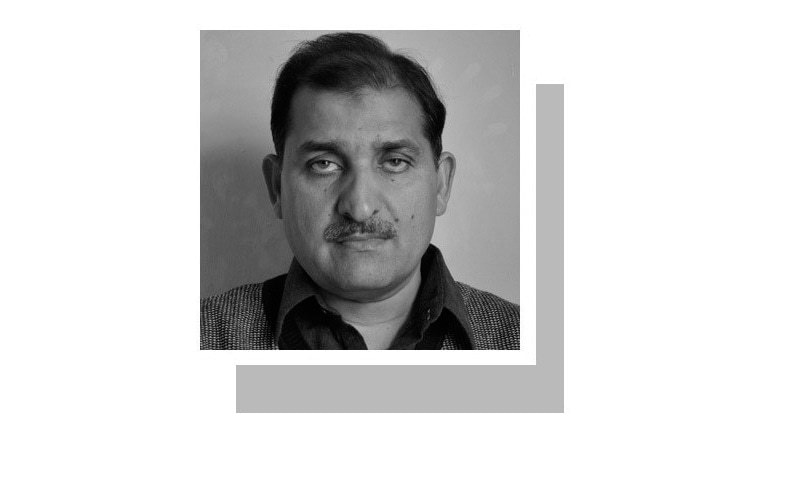
ALREADY set back nearly three years, Afghanistan’s parliamentary election still remains an iffy proposition. Electoral reforms, a cornerstone of the power-sharing deal between President Ashraf Ghani and Chief Executive Abdullah Abdullah, are yet to be enforced. More importantly, constitutional amendments legalising the CEO post were due in 2015. But sharp divisions have forced a delay in the process, raising questions about the legality of the National Unity Government. The outcome of the 2014 presidential vote, marred by allegedly industrial-scale fraud, had triggered deep ethnic tensions that tended to push Afghanistan into a new round of civil strife. In a frenzied effort to prevent what many saw as a brewing storm, Kerry convinced Ghani and Abdullah into setting up a coalition government.
Although that scary scenario was averted, the unity government has since been struggling with internecine bickering. Institutional reforms, political harmony, respect for women’s rights and eradicating administrative graft are some of the divisive questions. Under mounting pressure from the global fraternity, Kabul has taken some half-hearted measures to clean up the system. Senior officials of the electoral panels have been summarily dismissed in the garb of initiatives to strengthen the democratic order in a country torn apart by tribalism.
Following several calls from parliamentarians, political figures and jihadi leaders, the government has set the Wolesi Jirga and district council elections for July 2018. However, snail-paced preparations, political polarisation, allegations of manipulation and lack of technical skills may lead to further delay. The government’s failure to honour its pledges to reinforce democratic institutions has prompted its detractors to vent their anger. In recent weeks, they have issued calls for convening the traditional Loya Jirga.
Despite being prodded by his international supporters, including Western diplomats, to heed opposition demands for transparent polls, Ghani has, instead, resorted to actions that smack of crude political vendetta. Hardly mindful of the fragile political environment, the head of state has impulsively ordered corruption investigations against his rivals. To boot, he has warned government servants against participating in demonstrations. Expected to exemplify tolerance of dissent to heal political wounds, he has, instead, slapped travel restrictions on vocal opponents.
Afghanistan requires a smooth transition.
In fact, the persistent uncertainty about elections signals the president’s shrinking political base. Because of his arbitrary governance style, he has alienated many of the political groups that initially backed the ruling coalition. In addition to the loss of public support, the government’s credibility has also eroded. In the first week of December, a strong power show in southern Kandahar province signified the opposition to the US-backed leader. Scores of legislators, ex-governors, former ministers and influential tribal elders sought an immediate halt to what they called a political witch-hunt.
Meanwhile, ex-president Hamid Karzai insists on convening the Loya Jirga to chart a new political path. Should it meet, the tribal assembly may come up with decisions that could make matters worse both for the president and his international backers. With that in mind, the government’s outright rejection of the proposal is understandable.
The use of modern technology is necessary to minimise mistakes and anomalies in the election, but inadequate technical capacity and power struggle between the coalition partners represent a major stumbling block. Similarly, a proposal for issuing biometric ID cards to voters was also shot down by parliament in 2016. As things stand, electronic voter registration, polling and vote count also appear to be unworkable.
Government denials aside, there have been widespread allegations of meddling from senior presidential aides in affairs of the Independent Election Commission and Electoral Complaints Commission. The turmoil deepened in mid-November when the president sacked IEC chairman Najibullah Ahmadzai. According to a recent survey by the Transparent Election Foundation of Afghanistan, 41 per cent of respondents do not think the IEC has the capacity to conduct fair polls. Only 29pc believe it can. No wonder then that many stakeholders remain sceptical about an inclusive ballot taking place eight months from now.
The long-delayed election is estimated to cost over $200 million. How the cash-strapped government will generate the required funds is another question Ghani should answer to assure a concerned nation.
The Afghans are in no mood to compromise their hard-won freedoms. In particular, women politicians are determined to find their way to parliament and participate in legislation on issues touching their lives.
Absent a smooth democratic transition, Afghanistan may return to its chaotic past — when warlords and terrorists called the shots. A weak administration would not be able to cope with such a crisis that no one would like to see recurring.
The writer is a freelance journalist based in Peshawar.
Published in Dawn, December 17th, 2017











































